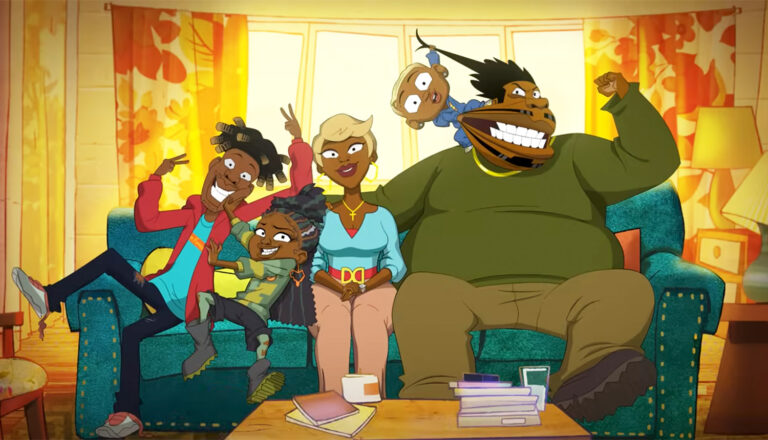
Frieren: Beyond Journey’s End
An elf mage contemplates on connection and regret as she watches her human friends grow old and pass away.

Each age comes with its own nightmares. In the Age of Aquarius, one was Charles Manson.
It’s 1967, and Los Angeles is in the grip of change. While the Vietnam War rages halfway around the world, youth at home are fighting against traditional authority. Blacks push for rights long denied. It’s an exciting time for some—a time to embrace love and peace and groovy music. But there’s a dark side to all that. And while the ’60s didn’t create Charles Manson exactly, the decade did provide the greenhouse in which he grew, the environment through which he spread. He believed in free love and anti-materialism and the power of music—specifically his music—to change the world. And he convinced his “family,” a harem of women who hung on his every word and note, that it would happen.
Emma Karn is one such young woman in NBC’s Aquarius, the network’s fictionalized snapshot of Manson and the era. A 16-year-old runaway, the girl is easily swayed by Manson’s personality and promises. She finds happiness in his presence, she believes. It’s at least a kind of happiness she didn’t feel when living with her mom and dad.
Her parents, obviously, want her back. But there are complications, given Dad’s political ambitions. In desperation, Mom turns to Sam Hodiak, L.A. detective and an old flame of hers, to track down Emma off the books. But Sam, sporting a crew cut and black tie, can’t exactly blend in with the city’s hippie culture. So he partners with young, hip narcotics officer Brian Shafe, a guy who sometimes has more in common with the folks he’s arresting than the boys in blue he’s working with. Together, Sam and Brian just might be able to track down the girl and deal with this Manson guy before he does something really despicable.
We know, of course, that Manson wasn’t dealt with, and that fact lends an air of fatalism to this taut NBC series, which is being unspooled an episode a week on TV while at the same time arriving in toto on the network’s app and iTunes. But this isn’t a show to just casually binge watch. Because NBC plays up both the tawdry sex and the unimaginable violence that consumes Manson’s story.
Many of the episodes sport a TV-MA rating, and those that are rated TV-14 aren’t noticeably better. The series is filled with sexually charged content—from heterosexual to same-sex couplings, from suggested rapes to disturbing orgies—as intimate, moody camerawork takes us ever closer to the action. People are maimed and murdered, too, with the haze of marijuana smoke swirling around it all, along with the lightheaded buzz of guzzled martinis.
NBC might argue that such “realism” simply reflects the salacious situations in which the show is set. The 1960s brought with it dissolving norms, after all, as society itself seemed to be crumbling into a more free (read: lawless) state. Ironically, it was television in that time that was governed by some of the land’s strictest rules. The age of the counterculture was also the age of The Andy Griffith Show and Gunsmoke, The Beverly Hillbillies and Gilligan’s Island. The Smothers Brothers Comedy Hour—as radical as television got back in the day—seems so wonderfully innocent now.
Our current television epoch is, meanwhile, glorying in an almost countercultural revolution itself—pushing harder and harder toward the status of anything goes. And while this newfound freedom, some would say, is a catalyst for unprecedented breakthroughs in storytelling, it brings with it nightmares of its own. And you need look no farther than Aquarius to find some of them.
“Everybody’s Been Burned” / “The Hunter Gets Captured by the Game”
After she sees her boyfriend receiving oral sex from a stranger, Emma rebounds by falling under the spell of Charles Manson and is quickly adopted into his “family.” Grace, Emma’s desperate mother, turns to old beau Sam Hodiak to track her down. He and Brian try to do so, while also juggling other cases.
Movements and/or flashes of skin are seen during the oral sex encounter (which is repeated in flashback), as well as in an orgy scene that follows. In a parking garage, Manson holds a straight razor to Emma’s father’s throat as he presses into him from behind, talking about the sex he had with his daughter and the sexual abuse Manson himself once allegedly suffered. He then unbuckles his pants as if to rape the man. The two men later kiss passionately, and Manson talks about earlier days when they were “together.” A policewoman is threatened with rape. Verbal references or allusions are made to oral sex, group sex, prostitution, homosexuality and incest.
Emma bites a store owner’s hand. Manson then ties the guy up and cuts his eyes out (offscreen), leaving him in a pool of blood. A perp is tripped and falls down the stairs, breaking a bone. The body of the woman is covered in a sheet, a bloody brick laying to the side. Cops walk along a bloodstained curb.
Sam and Brian break the law several times as they otherwise try to do their duty to it. Sam pushes and knocks people around, also misleading them in order to get information. He unfairly drags a Nation of Islam advocate into the police station as a way to get another guy to confess a crime. The Muslim man tells Sam he’ll pray for his soul … while waiting for an opportunity to beat his “a–“. We hear references to a Catholic saint.
Sam’s son, in the army, goes AWOL with help from his mother. Several people (including policemen) smoke marijuana and drink alcohol. We hear “b–ch,” “a–,” “h—” and “d–n.” God’s name is misused. There are derogatory racial slurs. Police are called “pigs.”


Paul Asay has been part of the Plugged In staff since 2007, watching and reviewing roughly 15 quintillion movies and television shows. He’s written for a number of other publications, too, including Time, The Washington Post and Christianity Today. The author of several books, Paul loves to find spirituality in unexpected places, including popular entertainment, and he loves all things superhero. His vices include James Bond films, Mountain Dew and terrible B-grade movies. He’s married, has two children and a neurotic dog, runs marathons on occasion and hopes to someday own his own tuxedo. Feel free to follow him on Twitter @AsayPaul.

An elf mage contemplates on connection and regret as she watches her human friends grow old and pass away.

Netflix takes a classic sitcom, Good Times, and turns it into a vulgar, violent, sexually-charged TV-MA show.

While its protagonist might live a nuanced life, The Sympathizer’s problematic content can’t be described the same way.